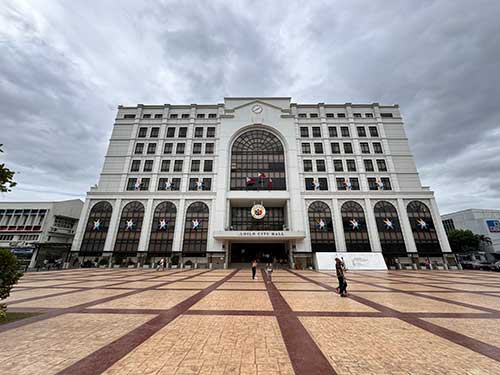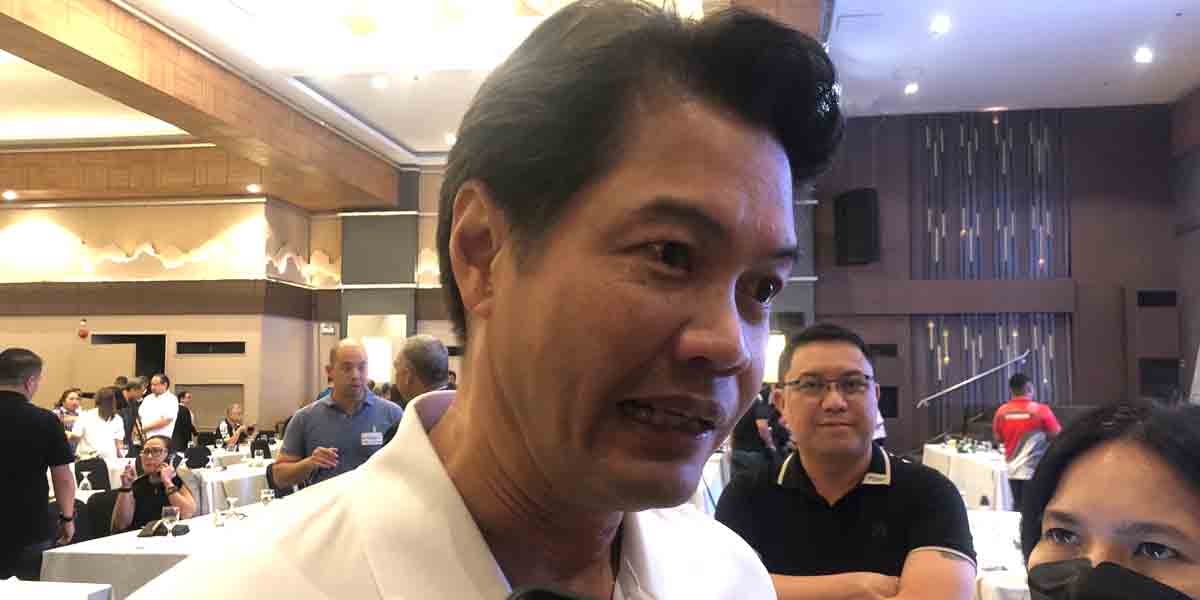
By Rjay Zuriaga Castor
Several projects of the Department of Public Works and Highways-Iloilo City District Engineering Office (DPWH-ICDEO) have been completed without the necessary building permits. How will these projects proceed in the future?
Atty. Manuel Magbanua, Counsel for the Office of the Building Official (OBO) of Iloilo City, explained that the DPWH-ICDEO must still secure building permits for these infrastructure projects to be used for their intended purpose.
Magbanua clarified that while non-compliant structures will not be demolished, they will face significant issues, particularly regarding their eventual occupancy.
“If you do not have a building permit, you cannot obtain a certificate of occupancy from the OBO. Without a certificate of occupancy, the structure will not be able to get electricity and technically cannot be used,” he explained.
“These projects may end up not being utilized or fully utilized since there might be no electricity or water, which is a significant issue when a building permit is not obtained,” he added.
After completing construction, a certificate of occupancy is required to lawfully use the building. This certificate is granted following final inspections that verify the building’s compliance with approved plans and ensure its safety for occupancy.
The certificate of occupancy is essential for obtaining electricity from utility providers and applying for new water service connections.
What legal sanctions will the DPWH-ICDEO face for disregarding the necessity of obtaining building permits from the OBO?
Magbanua explained that under the penal provisions of the National Building Code of the Philippines (NBCP) or Presidential Decree No. 1096, the DPWH-ICDEO may be punished by a fine of not more than P20,000 or by imprisonment of not more than two years or by both such fine and imprisonment.
“They can be subjected to additional administrative fines and penalties, but under the current policies provided in the NBCP, we typically do not issue fines for government projects since they are usually exempted,” he added.
Magbanua, however, pointed out that it also “appears that no criminal case can be filed or no imprisonment on this matter since it is undertaken by a government agency (ICDEO).”
Late Permit Applications Allowed
OBO head Engr. Mavi Gustilo, citing the NBCP, emphasized that the DPWH-ICDEO can still apply for a building permit even if the project has already started construction or is finished.
However, the application will only be granted if the DPWH-ICDEO has complied with both the documentary and technical requirements, including obtaining consent from the lot owner of the project site.
“The belated application for a building permit is allowed. Under the law, you can still comply,” Magbanua also remarked.
Gustilo added that the OBO is giving due consideration to projects that are by government agencies.
“We are giving consideration because even for private personnel, we offer leniency. If they cannot immediately provide the documentary requirements or fail to comply with technical requirements, we issue an undertaking that they must comply by a set date. That is our form of consideration,” she said.
Gustilo clarified that the OBO is not “vindictive” towards the ICDEO, emphasizing that the latter has consulted with the local government unit and obtained approval from the City Council before project implementation.
The OBO head said she will call for a coordination meeting with the ICDEO’s personnel to address the issue of the “delayed” projects.
“These are government projects and this is for the benefit of the public. If we can make things right, then we will,” she said.
Moving forward, Gustilo emphasized the need for strict enforcement in project mapping to issue violation notices and work stoppages if construction bypasses the legal process.
OBO records showed that the ICDEO has 45 projects in progress, with 36 having official requests for evaluation. Of these, 18 have been evaluated and returned to the ICDEO for rectifications, while five have undergone evaluation and are awaiting endorsement.
Currently, 13 projects are ongoing, three have pending business permit applications, and seven have no records on file.
Among the 45 projects are the controversial Mandurriao Public Market and six multi-purpose buildings. Recently, the City Council revoked the ICDEO’s authority to construct these seven projects.
The delay in completing these projects prompted the city government to declare ICDEO head Engr. Roy Pacanan persona non grata.

















